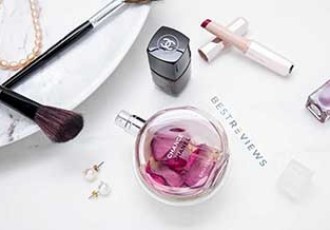BestReviews is reader-supported and may earn an affiliate commission. Details
We recommend these products based on an intensive research process that's designed to cut through the noise and find the top products in this space. Guided by experts, we spend hours looking into the factors that matter, to bring you these selections.

Antifungal soap is specially formulated to treat and prevent fungal infections on the skin. These infections cause mild to severe irritation and may be picked up in a variety of locations. Antifungal soap is sometimes made with fungus-combatting ingredients like ketoconazole and miconazole but more often features natural ingredients like tea tree and eucalyptus oil. Many soaps are also scented with mint or coconut to fight any unpleasant odors.
It’s vital to treat fungal infections quickly because they can spread to other parts of the body and are very contagious. In a household with shared bathrooms, transmission can occur quickly. Also, fungal infections are quite unpleasant, and it’s best if they’re caught early and treated swiftly. Use antifungal soaps as a preventative if you frequently spend time in locker rooms or shared showers.

There are various types of fungal infections, and not all infections will respond to the same active ingredients. Check product labels to find out which type of fungal infection a particular soap is best at treating. Here are some common fungal infections and their symptoms:
People with weakened immune systems are more susceptible to picking up fungal infections, but anyone in the wrong place at the wrong time can contract a fungal infection. Fungal infections are contagious and can be spread from person to person via direct contact or in shared locations like showers.
Fungal infections of the feet are often picked up in places where people tend to go barefoot. Pools and locker rooms, for instance, are hotbeds for fungi. Wear protective footwear in these places to protect against infection.
Other types of fungal infections like jock itch or vaginal yeast overgrowth are more likely to be caused by bad habits such as remaining in sweaty clothing after workouts. Change out of moist or wet clothes promptly to prevent fungal infections from proliferating.
At-home treatment of fungal infections with soaps and creams is possible if your infection is in its beginning stages. Early treatment is critical to prevent spreading to other areas and to other people. Don’t mess around with skin infections. If you notice your condition isn’t improving, seek help from a medical professional. Severe infections may require stronger medication that isn’t available over the counter. During the initial stages of a fungal infection, regular washing with a medicated soap is vital.
If you have dry skin or deal with other skin issues like acne, choose an antifungal soap to suit your skin type. Pick soaps with moisturizing properties in addition to medicinal ingredients if you have dry skin or eczema. For those with reactive skin or acne, pick non-comedogenic formulas.




















Antifungal soaps are available in both solid and liquid forms. Both are effective, so the choice depends on your preference.
Antifungal soaps contain medicinal ingredients to treat fungal infections. Conventional antifungal medications include ketoconazole and miconazole. Both are part of a larger class of drugs called azole antifungals. These ingredients kill fungal cell membranes in order to eradicate infections.
If you prefer a natural remedy, soaps with naturally derived ingredients such as tea tree and eucalyptus oil are also available. Both oils are known to have antibacterial and antifungal properties. With consistent use, substances like tea tree oil have been shown to cure fungal infections, particularly those affecting the nails.
If you have any concerns about your skin, be extra selective when picking an antifungal soap. The wrong type of soap may dry out your skin or cause breakouts. Like regular soap, there are antifungal options made for different skin types, from dry to oily.
Antifungal soaps are often scented to mask the odor of pungent active ingredients. Check reviews to find out what others have to say about a product’s scent. Does it cover up the strong smell of medicated ingredients? Is the odor overpowering or is it pleasant?

Antifungal soaps range in price from $12 to $15. Pricing typically works out to between $1 and $2 per fluid ounce, depending on the brand.
Bar soap is usually less expensive than liquid soap, averaging less than $12 for a single bar. Save money on bar soap by getting it in packs. Bar soap tends to last longer than liquid soap as well. With liquid soap, it’s easy to accidentally spill or dispense too much.


A. Unfortunately, even daily washing with antifungal soap may not cure your infection. Fungal infections are notoriously stubborn and have a tendency to return. Research on the effectiveness of antifungal soaps in the prevention and treatment of fungal infections is limited, but the ingredients included in many antifungal soaps do indeed have antifungal properties. In some cases, it may take as long as six months to cure a fungal ailment. Even with diligence, however, fungal infections, especially those affecting the finger and toenails, are notorious for recurring.
A. Speak to a doctor before using any type of medicated soap on a child, even those formulated using solely natural ingredients.
A. Studies on the effects of using antifungal soaps, creams, and ointments while pregnant or nursing are few and far between. It’s best to avoid using antifungal products when pregnant or nursing unless you’ve been given the okay from a healthcare professional.
Get emails you’ll love.
Learn about the products you’re wondering if you should buy and get advice on using your latest purchases.
